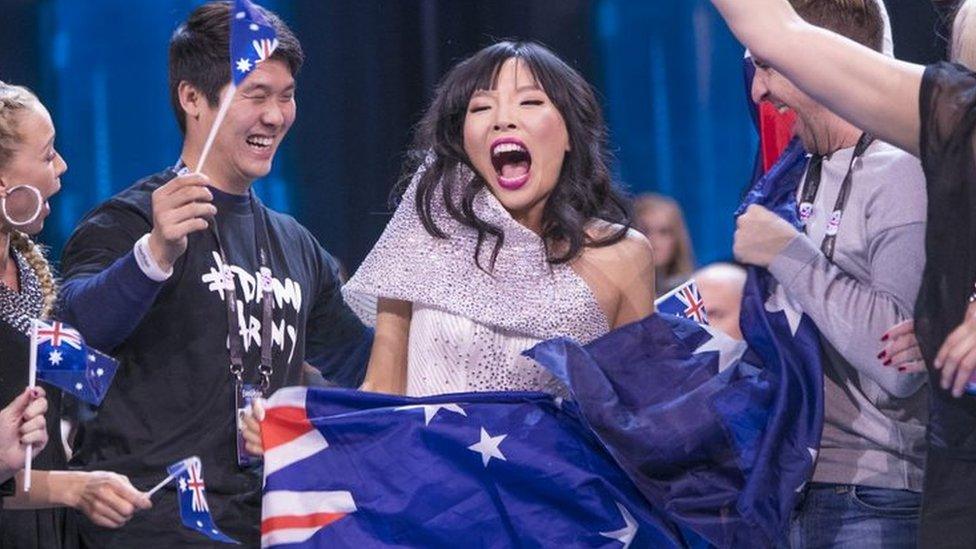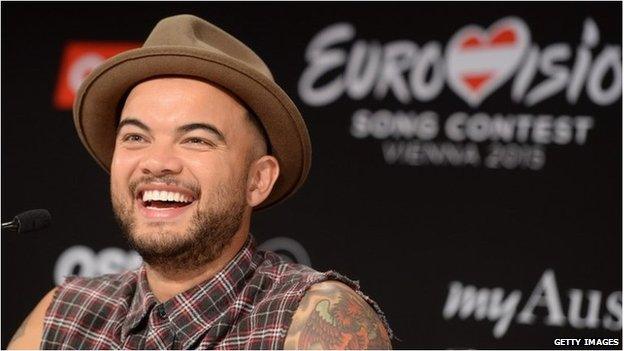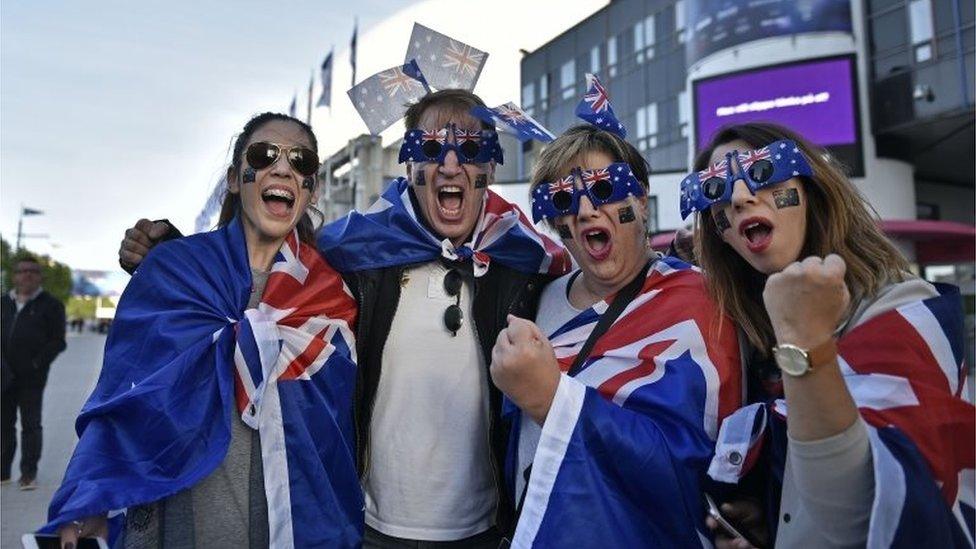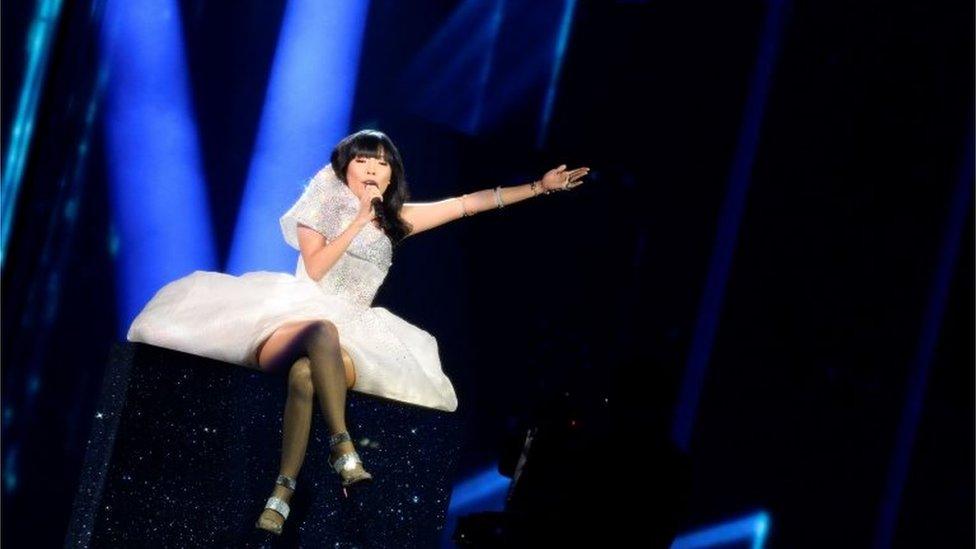Why Australia loves Eurovision
- Published

Former X Factor Australia winner Dami Im is expected to sing to a worldwide audience of 200 million viewers during the Eurovision finals
Australia's inclusion in Eurovision for a second year still seems to shock purist spectators of the electrifyingly strobe-lit, synth-laden song contest.
But K-Pop powerhouse Dami Im has defied criticisms over the geographic absurdity of Australia's presence by sidling up to Russia as second favourite to win in Stockholm this weekend.
Australian bookies slashed the odds on Im winning after her stellar semi-finals performance of "Sound of Silence".
It followed BBC Eurovision commentator Graham Norton's controversial quips that she should abandon her efforts.
"I know some countries aren't technically in Europe but, come on - Australia is on the other side of world… I just think it is kind of stupid," he was quoted as saying.
Considering the continent is closer to the South Pole than Stockholm, Norton has a point.
But as Korean-born Dami Im - who migrated to Australia at the age of nine and learnt English from the Spice Girls - has said, it has been a long-running romance.
"Australia has been a big fan since the 1980s, we love watching Eurovision," she said at a finalists' news conference, external in Stockholm. "We just love the concept of coming together and playing music."

Australia's wildcard entry Guy Sebastian wowed Vienna in 2015
Australian broadcaster SBS said last year's broadcast, which included Australia's debut contestant Guy Sebastian, reached four million Aussies. He came a surprise fifth.
With the groundswell of support from an ever-growing Australian fanbase, along with cultural connections with Europe, being invited back to one of the world's campest parties seems only natural for some.
The cringe factor also charms Australians, who like to laugh at themselves, and not take things too seriously.
This year, organisers have continued to stretch the boundaries as part of a push to take the eisteddfod on steroids to a truly global audience.
The contest is being aired in the United States and China for the first time.

Australian fans are prepared to make the effort to travel to see the contest in all its glory
And rumour has it Australia could host the first instalment of a Eurovision hybrid built for the Asian market in 2017.
Underdogs from Down Under
For arguably Australia's biggest Eurovision fan, Sharleen Wright, fitting into the Asia Pacific mould makes more sense.
The logistical challenge of sending that many sequins so far south to a separate hemisphere would be hazardous to start, but Europe would be forced to endure the dreaded time differences.
Bleary-eyed fans in Perth had sore heads on Friday after setting their alarms for 02:00 to take part in the live broadcast for the semi-finals and hold house parties.
Ms Wright, a travel industry professional who is also president of the Eurovision Song Contest Fans of Australia Network, says she has selected new destinations to visit on the basis of "I saw it on Eurovision".

Dani Im's performance will be being watched by sleepy Australians on the other side of the world
For Helen Kellie from SBS, Australia's love for the show goes back to the very essence of the first event more than 60 years ago - the aura of cultural inclusion that manages to draw in so many outsiders.
"We celebrate multiculturalism and Eurovision is a wonderful way to celebrate people's heritage, and it's just an amazing party and we love a good party," Ms Kellie told the BBC from Stockholm.
Ms Kellie acknowledges that the Australians are copping plenty of rival banter "at the party", but says that because they don't have the political history of other entrants, "we can play with everyone".